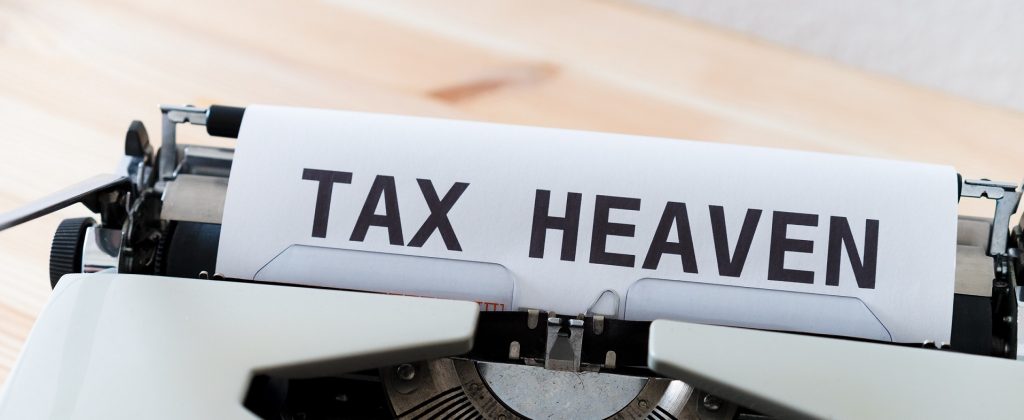
The president’s proposed 2024 budget would end the famous 1031 exchange, a popular tax rule that helps property sellers avoid capital gains tax. Basically, it’s a way of swapping one investment property for another. But Joe Biden’s budget calls it an “indefinite interest-free loan from the government.”
This tax loophole, as the White House describes it: lets investors “put off paying tax on profits from deals indefinitely…Real estate is the only asset that gets this sweetheart deal.”
But can the Biden administration end it?
We’ve Heard This Before
Joe Biden is a longtime critic of the 1031 exchange. Since coming into office, Biden has regularly tried to end or limit 1031 exchange tax breaks. But real estate professionals keep pushing back. They love the Internal Revenue Code’s Section 1031. Why? Because it incentivizes investors to keep buying increasingly valuable properties.
Real estate spokespeople point out that small investors turn to the 1031 exchange to be able to buy new rental properties and build wealth. Here’s what they say.
- The American Land Title Association supports Section 1031. ALTA says the exchanges offer benefits to a wide variety of U.S. investors and communities.
- The National Association of REALTORS® similarly points out that these exchanges are used by ordinary investors and retirees.
Industry leaders have protested even when the Biden administration promised to keep 1031 exchanges available for smaller investors who make profits only up to $500,000 ($1 million for couples filing jointly).
Granted, Section 1031 is also very popular with owners of massive ranches and holders of mineral rights. These wealthy landowners can use 1031 exchanges to amass enormous real estate holdings. Some pass their ownership down through families, without ever having to declare and be taxed on their capital gains. Subsequent generations will get their “stepped up” cost basis if they wish to sell these properties. So it’s true that Section 1031 is a key tool for the very rich.
Ultimately, will Section 1031 be ended or at least limited? Probably not. White House budget items have to get Congressional approval. And lawmakers, both Democrats and Republicans, often buy investment properties through Section 1031 exchanges.
The real estate lobby continues to be hugely influential, too. All things considered, we can expect the 1031 exchange to survive.
The Magic in the 1031 Exchange

Section 1031 lets real estate investors out of capital gains tax when they sell one business or rental property to acquire a more valuable one. By law, an investor must use an independent Qualified Intermediary (QI) in the transaction.
The QI (a.k.a. accommodator) locates potential properties that the investor might like to buy. Then, the QI handles the sale of the investor’s current real estate.
The funds from the sale must go to the QI. The QI holds the sale proceeds safely in escrow until the replacement property is identified. The QI buys the new property with the money. The investor’s name goes on the deed.
Now, here’s the magic of it all. Technically, the investor never took control of the sale money. So, no tax event is deemed to have happened. Investors who follow the IRS rules can benefit from Section 1031 tax savings for life, eventually turning the last property in the chain into their own home, or passing the deed to surviving beneficiaries in the form of a tenancy in common.
☛ Be sure your heirs know how taxes impact sales of inherited homes. Ask an estate and trust attorney or accountant to carefully review your particular situation.
Bequeathing a home to someone after death (instead of selling it or giving it away during life) can spare the heirs from having to pay taxes on capital gains when they sell. But each estate is unique. Because case-specific advice is critical, consult with your own expert to understand how tax policies and changes may impact your estate.
A Timeline for Your 1031 Exchange

You might wonder if a 1031 exchange could work for you, and how. Here’s what you’d need to do, and the timeline for doing it:
- Ask your real estate pro for a referral and run a search for professional accommodators at the various “1031 exchange companies” in your state. You’d pay their fees out of your transaction funds.
- Sell your rental or commercial property. Sale proceeds need to go directly to escrow. Do not receive cash proceeds from your property sale.
- Have the intermediary locate investment properties of a higher value than the property you’re selling, and draw up a purchase agreement for a like-kind exchange property. You’ll need to have found potential “designated replacement properties” within 45 days for your exchange professional to buy for you.
- Close on your new investment property within 180 days. Be sure it isn’t a cheaper property than you traded for it (or the IRS will tax your profits).
If you invest in properties, you can use Section 1031 to exchange one property into a more valuable one, and keep doing it, gradually building wealth. With each trade up, the Section 1031 tax savings helps fund the more “productive” property you’re buying.
How to End a 1031 Exchange (As an Investor)
Buying a rental property that you’d love to keep for yourself at some point? Just keep renting it out for two years, treating it as an investment property for tax purposes. Two years isn’t etched in stone, but it’s enough time to show good faith.
When you’re ready, live in the home. Treat it as your primary residence for at least two years. Now, the home qualifies for a capital gain exclusion on your tax returns if you ever decide to sell it. If you keep it for life, your heirs will receive a nice tax benefit: the stepped-up tax basis on estate assets. See Like-Kind Exchanges – Real Estate Tax Tips to learn about it all from the IRS.
As you know, the Internal Revenue Code is complicated. And states have their own distinct tax provisions. Speak with your tax pro or a local lawyer when planning any real estate deal.
☛ We have more for you here about Estate Planning for Your Real Property.
Now you know how to end your own 1031 exchange, and maximize the benefit your real estate investments bring. Wealth-building wealth through real estate is a historically sound method, regardless of wish lists and actual policy changes made by any administration.
Supporting References
The White House: The President’s Budget Cuts Wasteful Spending on Big Pharma, Big Oil, and Other Special Interests, Cracks Down on Systemic Fraud, and Makes Programs More Cost Effective (fact sheet dated Mar. 9, 2023).
A.J. LaTrace for Business Insider (Insider Inc.): A Popular Tax-Avoidance Tool That Home Sellers and Real-Estate Investors Have Been Using for Decades Is at Risk — Again (Mar. 9, 2023).
26 U.S. Code § 1031: “Exchange of Real Property Held for Productive Use or Investment.”
Deeds.com: The 1031 Exchange in 2022 (Jun. 2, 2022).
Deeds.com: The 1031 Exchange and Other Real Estate Tax Staples: Will the Biden Administration Make Changes? (Jul. 1, 2021).
Deeds.com: For Property Investors – Six Steps to a 1031 Exchange (Mar. 3, 2021).
And as linked.
Photo credits: Markus Winkler, Kampus Production, and Mikhail Nilov, via Pexels.
